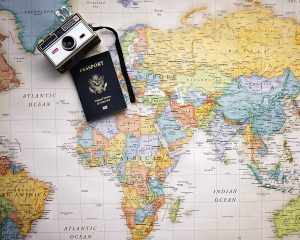Owner-Operator Rico Muhammad recently sat down with Overdrive Radio to discuss the nation’s hottest topic: racism. Chatting about injustice sometimes seems to go nowhere. But Muhammad claims he actually feels hopeful about the future. Younger generations are practicing equity. Older generations willingly come to the table to have difficult conversations. Progress, though slow, is happening.
Muhammad is clear that he does not view himself as a victim, And he doesn’t want others to think of him that way. But he discusses the hurdles he has faced as a black man. In many ways, they are different shapes and sizes than the hurdles his white friends have faced. At one point, he mentions being told his whole life that he has to be “twice as good” to get anywhere. That seems to be a common sentiment.
What Does Racism in America Look Like Today?
The wealth gap comes up pretty quickly. Many jobs today require applicants to have graduated from college. Muhammad mentions how much more difficult it is to get to college as a black individual in America. Schooling costs money. Living in a certain zip code can mean children go to underfunded schools. Parents may have to take out mortgages on the house to pay for higher education. And if your house resides in that “undesirable” zip code, you have less to work with financially. Muhammad describes this as a “lack of opportunity” within the black community.
Muhammad also talks about how casually some people, even in his industry, treat racist humor. He brings up a former employee at US Express sharing a picture of President Obama being lynched. Though he feels like the climate around racism is less outwardly violent today, he knows it still exists. He addresses “systemic racism” several times, a term that helps to describe where America is at now.
Systemic racism looks at racism as an issue that goes beyond “black and white.” It acknowledges that a person can consciously believe that they don’t see color or have racist tendencies. They may love members of other races and cherish time with them. But simultaneously, the systems around us teach us stigmas based on race. And these stigmas are subconscious. They exist in the way the media treats people of color. It’s apparent in the kinds of characters they often play on television or in the movies. And like it or not, those ideas affect us.
Moving Forward
Muhammad believes that there is hope, however. He discusses watching the changes happening now. Younger generations are talking openly about it. He admits to feeling optimistic when he sees young people outside of the black community going to bat for their black friends. “It’s going to take people pushing back and actually standing up.”
Change is slow-moving. Progress and impatience often butt heads. But being open to these discussions is part of what pushes us forward together. Muhammad suggests that letting go of some of our privileges may feel uncomfortable. “It’s going to take white people to see that ‘wait a minute, we cannot continue. If this is our fellow man and we say that all are created equal, we have to be willing to challenge and give up some of our white privilege.”
But having racial privilege doesn’t mean you have had it easy in life. It just means that the color of your skin was not one of the hurdles you had to jump over. Hopefully, that hurdle continues to get smaller and smaller in the future.




